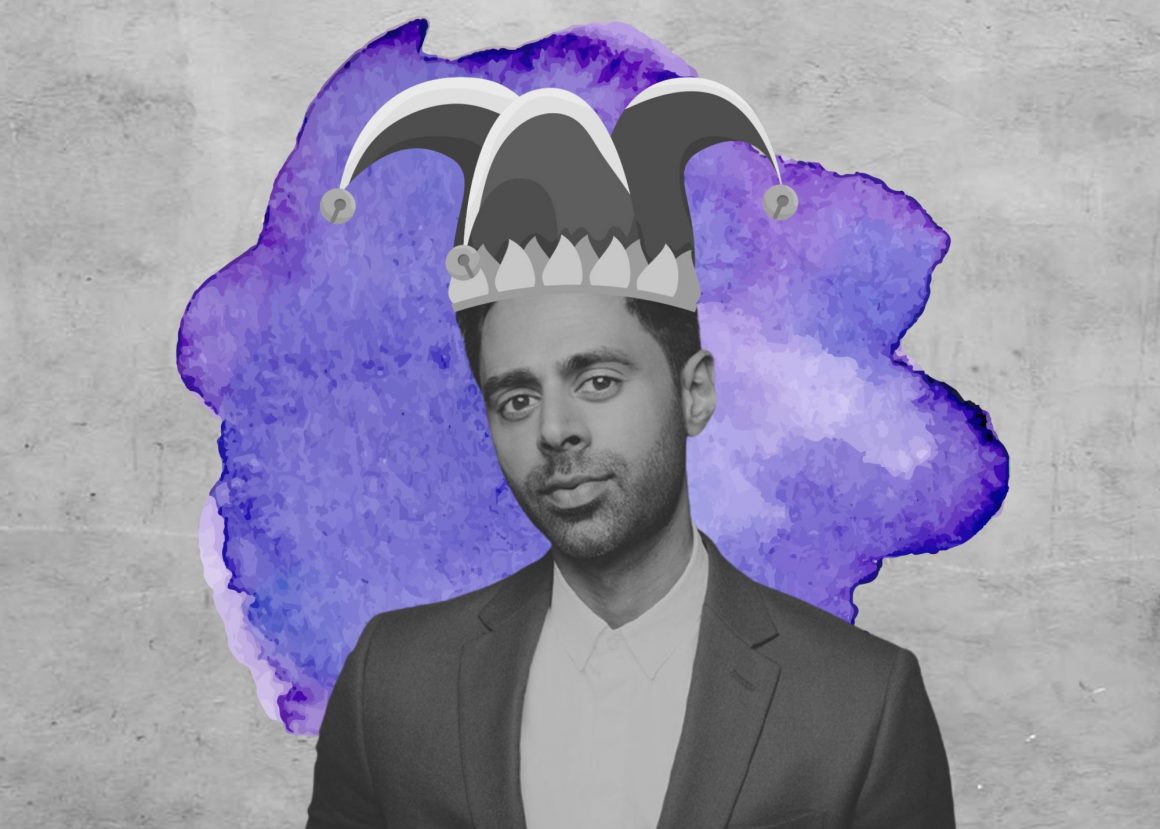
The King’s Jester walks the blurry line between comedy and confession
By Nazeefa Ahmed, November 30 2022—
South-Asian comedian Hasan Minhaj gives quite the performance in his recent Netflix comedy special, The King’s Jester. His crater eyes, theatrical expressions and classic “cry-Hasan” voice mirror that of King Julian from Madagascar — from the surface, some may dismiss his stand-up as borderline childish. After all, Minhaj strays away from stand-up’s traditional nonchalant demeanour through his rehearsed and over-the-top delivery.
But The King’s Jester is a comedy special that isn’t comedy on its own — it is an amalgamation of all the life lessons Minhaj has learned while navigating his struggles and temptations. Hasan comments on how fertility, fame and fatherhood tested his resolve and caused him to make brash decisions that came at the cost of his family’s safety. He pokes fun at his at-times shallow nature while simultaneously delivering heavy messages.
Minhaj shares bizarre stories such as trying to interview the Saudi crown prince, being targeted by a federal agent and becoming addicted to “Facebook fentanyl.” As an expert performer, he leads you on to something more bizarre, unexpected and sometimes near-impossible at every turn.
However, Minhaj does not strive to solely get a belly laugh from his audience. Minhaj rather encourages his audience to laugh at the extent of his struggle, mistakes and growth. He isn’t afraid to stab a sword at the most vulnerable parts of his life if it means that his audience will reflect on their own mortality.
Through his wild hand gestures and intense eyes, he makes a spectacle of himself and invites us to laugh at him. And, by doing so, we viewers gain the courage to laugh at ourselves.
Minhaj’s audience is often left starstruck by his charisma which he uses to his advantage by criticizing and bringing attention to broader social norms and practices. As an activist comedian, Minhaj slices power structures with razor-sharp precision. He points to hypocrisies, double standards and oppressive actions whilst persuading his audience through laughter.
Unlike many “woke” comedians, Minhaj does not rely on victim mentality or virtue-signaling to get his point across. Viewers are not spoken down to, but are equal participants in social discourse. This style in his special follows a similar format to his political-comedy show, The Patriot Act in which he uses ridicule and satire to bring attention to social problems plaguing the United States. His entire brand of activism is rooted in comedy, which he weaves into The King’s Jester without making his messages feel forced.
Some have criticized the special for its rigid structure. His performance was almost too perfect, with every expression seeming to be timed down to a millisecond. The show follows a predictable path of backstory, action and then punchline. This style, according to critics, sucked the spontaneity out of the humor, something that is somewhat essential for a true comedy piece.
But Minhaj seems to make this choice purposefully, as he tells his audience, “I want to be able to switch between satire and sincerity and trust that you will know the difference.”
I believe the special was more of a theater performance than a casual comedy rendezvous. He symbolically represented himself as a jester, performing for the nobility that is his audience. The formal structure of his performance treats his audience with a level of mutual respect that matches the nature of the topics discussed.
While watching Minhaj’s hour-long special, you will laugh and you will learn something new. Ultimately, Minhaj’s confessions will give you the courage to look at yourself and society and laugh at the ridiculousness of it all.
